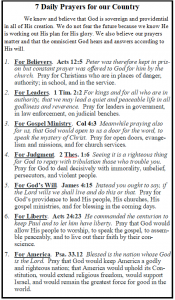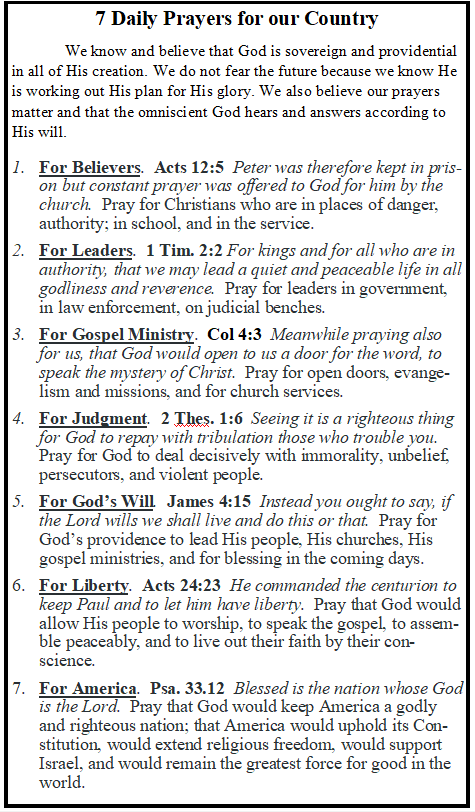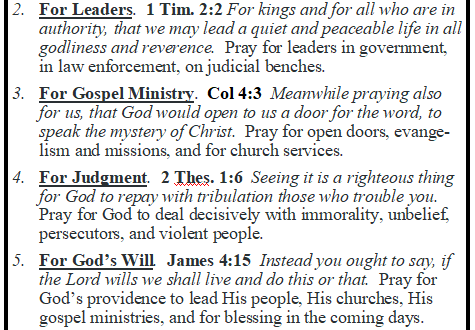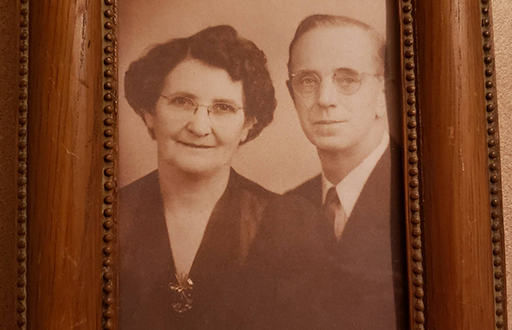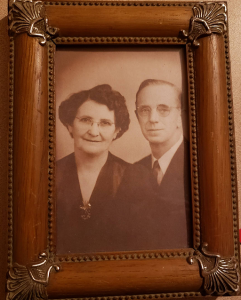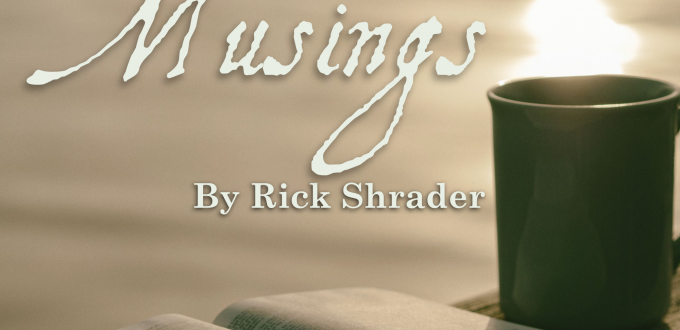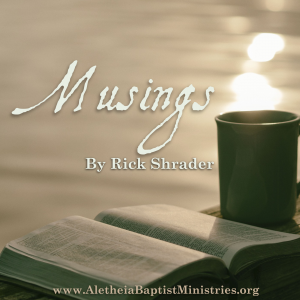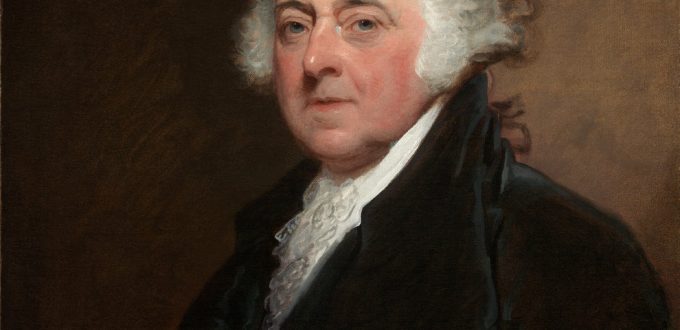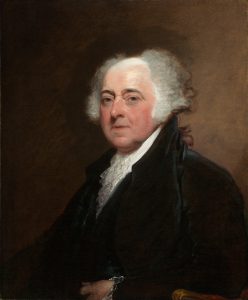I was born in 1950 with two grandfathers. I loved them both. “Grandpa Doc” Shrader was a dentist in Iowa, my father’s father. “Grandpa Sam” Condren was a simple man, a butcher in a local grocery store in Springfield, MO, my mother’s father. Both were WWI veterans, grandpa Doc in the medical core, and grandpa Sam a machine gunner in the trenches of France. I didn’t know grandpa Doc as well only because I didn’t spend as much time with him as I did with grandpa Sam. My brother and I spent almost every summer in Missouri with grandpa Sam and grandma Maude. Though I just wanted to fish with grandpa on the river, grandma was a special lady for many reasons, among them being her biscuits and gravy and blackberry cobbler. I remember the earlier days when grandpa was still cutting meat at the local market and we spent a lot of time playing games with neighborhood kids on the sidewalks and front porches. But my best memories are after grandpa was retired and we spent weekdays at the cabin on the Niangua River. On weekends we came back to their home in Springfield and always attended church on Sunday. These summers continued during my formative years until other obligations and family schedules changed.
“Drop your line right over that log. I think there might be a big one right there.” Grandpa Sam had the paddle to the square-ended river boat and my brother Joe and I sat in the other two seats, simple boards stretched across the middle and ends of the boat. Daytime fishing was done with cane poles and live minnows on the hook. At grandpa’s suggestion (never really a command), I lifted my hook and minnow out of the water and lowered it beside the log in the river. Almost immediately a heavy tug hit my line and the fight began. “Help me, grandpa,” I pleaded. I knew this was a good fish but I didn’t think I could get him in the boat myself. “If you’re gonna fish with me, you have to land your own fish,” grandpa replied. Moments later a 3lb smallmouth bass came over the side and landed in the boat. I still have a picture of me (at five years old) holding the fish with my brother Joe crying to one side because it was my fish not his. I learned a lot about life on that Ozark river and in the one-room cabin where we spent many summers.
“Keep your paddle on one side of the boat and keep the boat pointed into the current. We need to tie a line on that big tree limb over there.” Grandpa had lived his whole life, except for military service, in about a 50 mile radius of the cabin on the river. He grew up on a farm nearby and had brought grain, with a wagon and team, to the old mill that used to be on the river. He knew every fishing hole by heart. Grandpa taught us how to look at the river, take into account the water condition, see whether the water level was low or high, and then pick the places to set the limb-lines and trot-lines for the night. As a boy, the greatest thrill was to catch a big catfish on one of those lines we set overnight. After we tied on the lines going up the river in the evening, we baited the hooks coming back down the river just before dark.
“Now, Tow-Joe,” grandpa’s name for a mystical giant catfish, “might be on that special line tonight, that one we tied on that big tree limb, and if he is, you boys may have to jump out of the boat and ride him to the shore.” After returning to the cabin and eating supper, we would sit out in the yard and listen to grandpa tell fish stories. My brother and I would laugh at the stories but we would also sit with glassy eyes imagining the story just in case it might be true. “If you listen you might already hear the old fella slap the water with his tail. Yep, I think he just might already be on that line.”
Grandpa Sam wasn’t just about fish stories and spending all day on the river. He grew up in a log cabin the size of my living room where his father raised eight boys. I still have the rocking chair that my great-grandfather had in that cabin. Grandpa fought in the terrible trenches of France in WWI earning the purple heart. He and grandma ran a small market and diner during the depression era in Springfield, and later he cut meat for a local market across the street from his Springfield home (until the market closed they used grandpa’s recipe for sausage). One of my favorite pictures of grandma and grandpa Condren is a picture taken with their Sunday School class at High Street Baptist Church in Springfield. He loved his pastor and his church. It was this mixture of a veteran, depression era, plain spoken, Christian man that did so much in shaping my perspective on life. Take your fishing seriously but have fun and laugh. Work hard until your feet hurt but do it with pride. Plant a garden, go bird hunting, spend time on the river, but always be back in time to go to church.
Boys need fathers and they need grandpas too. A father may raise the boy but a grandpa shapes his vision of what a whole life looks like. My life still looks a lot like my grandpa Sam.
